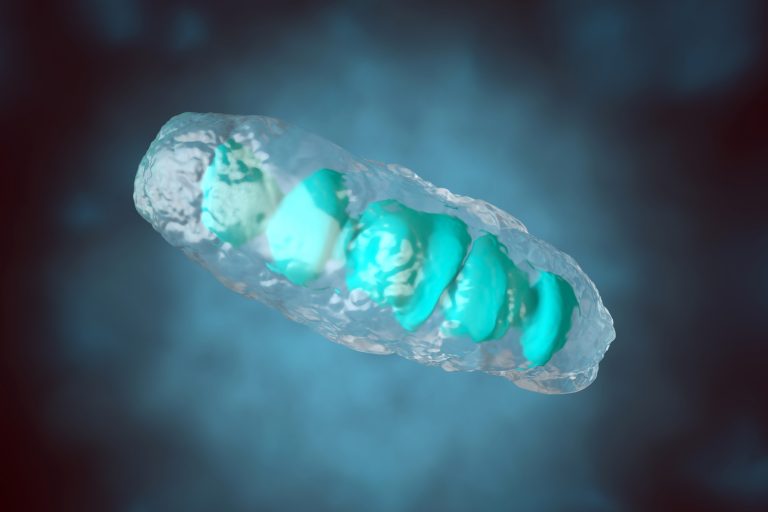
Whole genome sequencing (WGS) picked up 31% more rare genetic disorders than standard tests in a study of families with suspected mitochondrial diseases. The study, which recruited patients through the UK’s 100,000 Genomes Project, was published this week in the British Medical Journal.
“We recommend that whole genome sequencing should be offered early and before invasive tests such as a muscle biopsy. All that patients would need to do is have a blood test, meaning that this could be offered across the whole country in an equitable way,” said Patrick Chinnery, FRCP, FMedSci, of the MRC and senior author. “People wouldn’t need to travel long distances to multiple appointments, and they would get their diagnosis much faster.”
Mitochondrial disorders affect around 1 in 4300 people and cause progressive, incurable diseases. They are amongst the most common inherited diseases but are difficult for clinicians to diagnose, in part because they can affect many different organs and resemble many other conditions.
While previous studies based on small, highly selected cohorts have suggested that WGS can identify mitochondrial disorders, this is the first to examine its effectiveness in a national healthcare system—the NHS.
The study was led by researchers from the MRC Mitochondrial Biology Unit and Departments of Clinical Neuroscience and Medical Genetics at the University of Cambridge.
In total, 345 participants—aged 0 to 92 with a median age of 25 years—had their whole genome sequenced. A definite or probable genetic diagnosis was made for 98 families (31%). Standard tests, which are often more invasive, failed to deliver a diagnosis in these cases. Six possible diagnoses (2% of the 98 families) were also made. A total of 95 different genes were implicated.
Surprisingly, 62.5% of the diagnoses were actually non-mitochondrial disorders, with some having specific treatments. These would have been missed if the participants had only been investigated for mitochondrial disorders through muscle biopsy and/or a specific mitochondrial gene panel. Patients in this group had a range of conditions including developmental disorders with intellectual disability, severe epileptic conditions and metabolic disorders, as well as heart and neurological diseases.
The researchers made the rest of their diagnoses (37.5%) in genes known to cause mitochondrial disease. These diagnoses were nearly all unique to a particular participant family, reflecting the genetic diversity found in these disorders. The impairment of mitochondrial function tends to affect tissues with high energy demand such as the brain, the peripheral nerves, the eye, the heart and the peripheral muscles.
MRC’s Katherine Schon, BM, BCh, MRCP, added that, “A definitive genetic diagnosis can really help patients and their families, giving them access to tailored information about prognosis and treatment, genetic counselling and reproductive options including preimplantation genetic diagnosis or prenatal diagnosis.”
Ellen Thomas, Clinical Director and Director of Quality at Genomics England, said, “We are very pleased to see significant research like this being enabled by data generously donated by participants of the 100,000 Genomes Project. It is clear from these results how their contributions to a rich and, importantly, secure dataset is critical in facilitating the genomic research that leads to insights like these that then have the potential to return value to the NHS and their patients.”











